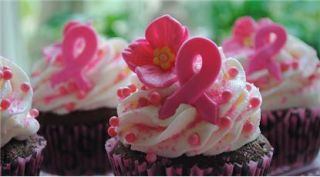Optimism
Every silver lining has a cloud
Beyond triumphant survivorship, is the dark side of cancer
Posted February 18, 2013

Cumulus Clouds
Much of my life revolves around cancer, both professionally and personally. My ongoing research of breast cancer culture and industry that started over a decade ago entails an immersion into the topic that involves incessant reading of medical studies, news articles, advocacy materials, public policies, and personal stories as well as systematic observation, interviewing, writing, and networking. It is my everyday work. Cancer also permeates my personal life. Many of my colleagues over the years and some of my closest friends and family members have dealt with cancer diagnoses, treatments, and the lingering effects of the disease and/or the medical interventions that were intended to slow its progression. Cancer has shaped their lives in fundamental ways. Since these people are important to me, their experiences affect me too. As I continue to research the social and cultural aspects of cancer, the personal and professional unite to inform my perspective.
A while ago I wrote an essay about Elizabeth Edwards’ death from metastatic (stage 4) breast cancer. After an initial breast cancer diagnosis in 2004, Ms. Edwards had a recurrence in 2007 and then died of the disease in 2010. Her death opened up a brief discussion about the metastatic segment of society—those for whom miracles, affirmations, and modern medicine fail with overwhelming regularity. As I wrote then, “There is a strong societal push to see the cancer glass as half full.” Uncontextualized survival statistics and announcements about new therapies, great treatments, and a new era of personalized medicine lend credence to the belief that incremental advancements in medical science signify imminent triumph in the war on cancer.
I am reminded of the less than triumphant and multifaceted aspects of cancer almost every day. My loved ones and acquaintances organize their lives around cancer. Medical appointments and tests are scattered across their calendars. I too await the results. Some endure multiple surgeries, unpredictable pharmaceutical cocktails, and myriad and sometimes experimental therapies. I witness their effects and listen to their reports. Some have had to alter their activities significantly, change their careers, or retire. Others do not have this luxury and continue to work despite fatigue, difficulty, and pain. All of these people manage side effects, some of which emerged long after their treatments ended.
I smile in relief when I hear updates about “no evidence of disease.” We agree that for now, this kind of news is “good enough.” If we can’t cure cancer, we might at least hold it at bay. I quell my sense of dread when another person I care about moves into a spiral of medical emergencies and unanticipated cancer developments—that chronic state of affairs when emergency room visits, body scans, pain, and thoughts of death become more regular. And then, cancer takes another life. Another friend. Another colleague. Another person I care about. It’s all too overwhelming at times.
What I've come to know about cancer through all of this is that cancer is indeed a human evolutionary condition with its own unique biological underpinnings. But it is also an epidemic rooted in a society and culture that too often fails to recognize cancer for what it is not.

Cancer is not a ribbon, a screening test, or a leisure activity. It is not a sassy t-shirt, a proclamation of survivorship, or a gift worth giving. Cancer is a life-changing event; a disease process that ignites what is all too often a cycle of medical surveillance and interventions, of which some succeed and others cause irreparable harm. For 65 percent of those who are diagnosed, it will be the eventual cause of death. To ignore this reality for any reason, whether charitable or out of fear, is to alienate, burden, and deny those for whom cancer is a major cause of suffering.
Hopeful attitudes are alluring to a society that fears cancer. Yet forcing optimism has negative consequences too.
- Suppressing the full range of emotions to be outwardly cheerful may mean that one’s emotional and practical needs will not be met.
- The emotional work to display optimism when a person does not feel it authentically may contribute to added stress, which is shown to have physiological implications that contribute to negative health outcomes.
- When the overemphasis on positive thinking places the burden of healing on the sick, it diverts attention from the social determinants of health—such as treatment modalities, access to care, support networks, and other factors known to influence healing.
- The mandate for optimism creates a controlling image: the triumphant survivor — one who cheerfully lives on beating the disease, suggests intrinsically that those who did not survive were not optimistic enough.
- Expectations that one should use a positive mindset to beat cancer continue to fuel posthumous narratives as well, paying tributes to battles courageously fought.
Illnesses and other traumatic experiences do have the potential to present people with opportunities for reflection and change that may have positive outcomes in various aspects of their lives. But as one of my colleagues has written: "For those who live with terminal illness...it is empowering to be honest with ourselves and with those we love and to plan for the future, no matter what it might bring. It gives a measure of control and enables us to live more freely and fully when we no longer spend precious energy suppressing or shutting away the reality of the hand we’ve been dealt."
---
Dr. Gayle Sulik is the author of Pink Ribbon Blues: How Breast Cancer Culture Undermines Women's Health. More information is available on the book's website.
© 2013 Gayle Sulik, PhD ♦ Pink Ribbon Blues on Psychology Today


